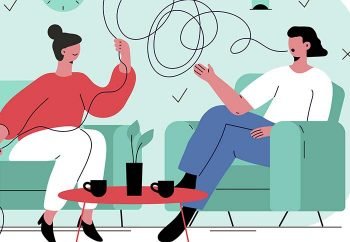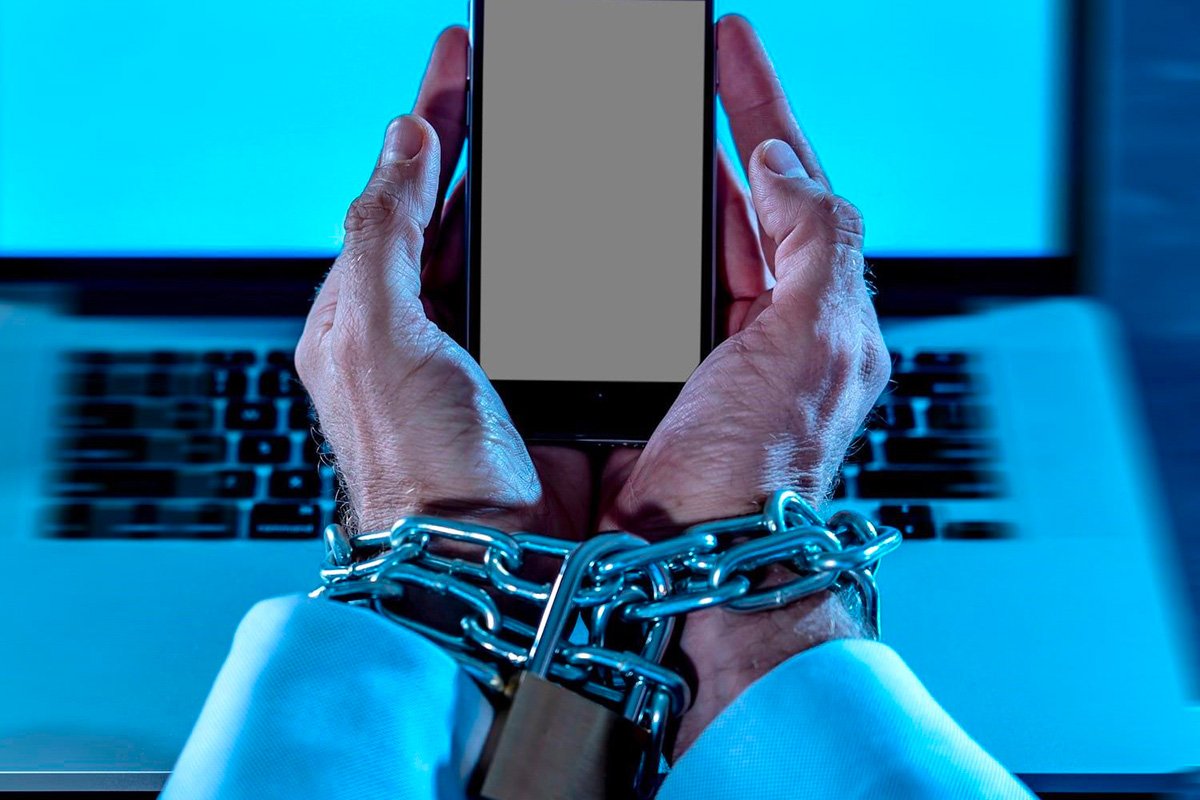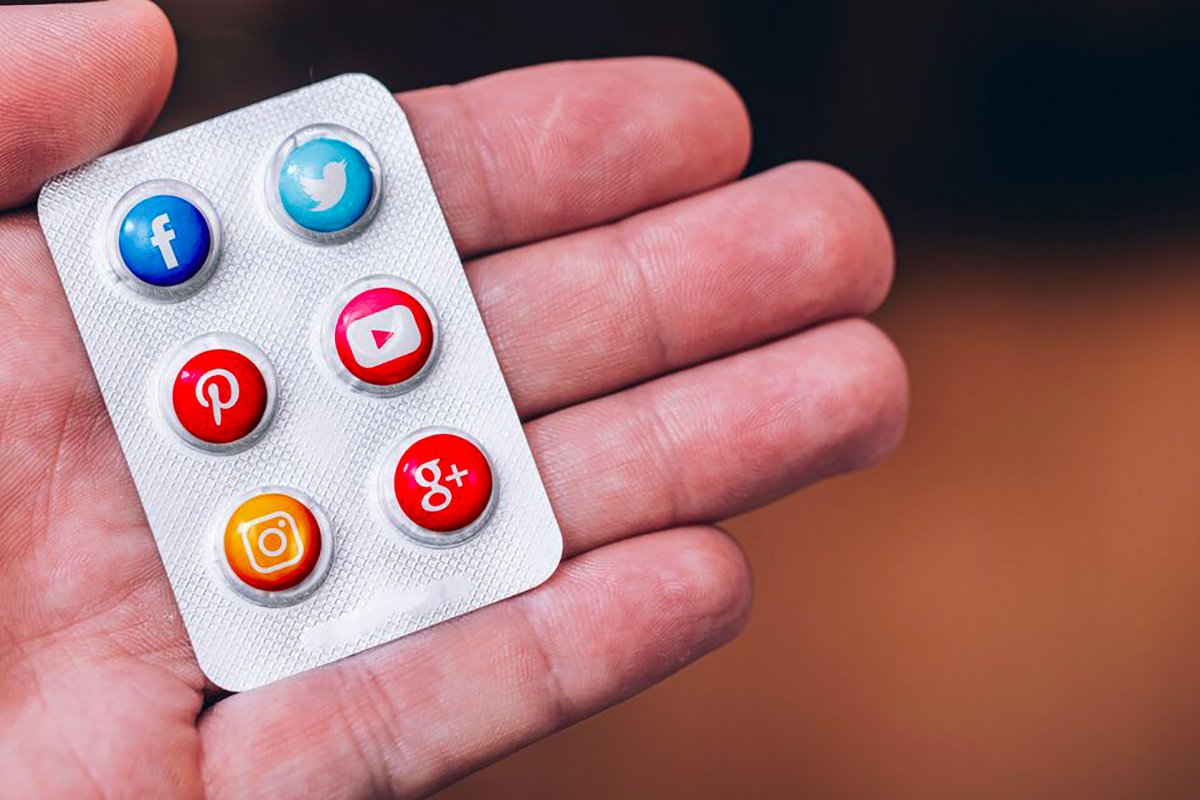Don’t think that you’re the only one who is aware that using social media is the cause for you to waste many minutes, and hours, at a time.
Social networking was initially created as a method to stay in touch with friends and family, but it has since developed into a valued activity that is enjoyed by people of all ages.
Even though you use social media frequently and may even enjoy it, are you "dependent" on it?
There is no recognized classification for "social media addiction." Hence overwhelming usage of social media platforms is becoming more developed today, and it could implicate serious danger on your physical and mental well-being.
Discover the signs of problematic social media use and what to do about them.

We help you find your psychologist
What is social media addiction characterized by?
The use of social media has become increasingly popular over the past ten years, whether it's to keep in touch with friends and family, watch movies, or just "waste time."
How, therefore, does an apparently benign pastime develop into a "addiction"?
Social media use can have negative effects on your brain, just like other behavioral addictions. You might engage in compulsive and excessive social media use. The act of just having to scroll through articles, videos, and photographs can develop into being an unhealthy habit that interferes with other aspects of your life.
According to some experts, up to 10% of Americans may be addicted to social media. However, given how prevalent social media users are,the number of people who have this form of addiction is suspected to be much higher.
Social media users do not all become addicted to it. However, in case this action and activity becomes more present in people’s lives and spread to more people,due to the rise in technology, more people may eventually get addicted to social networking.
What makes social media addictive?
While social media can appear like mindless entertainment that is soothing and relaxing, it actually has a big impact on your brain.
Dopamine signals in your brain grow whenever you use your favorite apps. These neurotransmitters are related to pleasure.
Your brain recognizes social media use as a pleasant activity that you should repeat when you feel more dopamine after utilizing it. You might experience this more each time you upload something of your own and get supportive comments.
You'll return to the source once the dopamine that makes you feel good wears off (in this case, social media)
Social networking might occasionally be a welcome diversion if you're stuck at home or sick at work. Your brain will begin to convince you that participating in this activity can lessen loneliness as you do so (which may not necessarily be the case, actually).

We help you find your psychologist
What are the disadvantages of social media addiction?
Social media usage on occasion is probably not detrimental. However, there are drawbacks to overusing social media that should be taken into account.
The following are some potential drawbacks of social media:
- Increased isolation and loneliness as a result of low self-esteem, which may be brought on by false beliefs that others' lives are "better" than your own.
- Either worry or despair
- Fear of missing out (FOMO), which can result in increased social media use, and the onset of social anxiety disorder
- Sleep habits that are disturbed, particularly if you utilize social media immediately before bed
- Reduced physical activity, which could harm your health overall
- Inadequate academic or professional performance disregarding the relationships in your "actual" life lowered capacity for empathy
How can you diagnose social media addiction?
You can find out from a mental health professional if you actually have a social media addiction or just really love using it a lot.
But there are some significant variations between a habit that you love and a social media addiction. These consist of:
- Detrimental impact of excessive social media use on your work or academic performance (e.g., scrolling through your apps at work or instead of studying)
- Increasing reliance on social media as a coping mechanism greater use during other activities, such spending time out with family and friends or eating out.
- Feelings of agitation and restlessness every single time you are not on your social media platforms.
- Feelings of anger whenever social media usage is decreased.
- Whenever you aren't using social media, you find yourself becoming obsessive about it that it's the most crucial thing you go to whenever you have the chance to.
How can you limit social media use?
The good news is that there are steps you can take to reduce your total use, whether you have a social media addiction or are simply using your applications more than you should.
Take into account the following advice to help you maintain a better balance on social media:
- Your smartphone's social media apps should be deleted. Even if you can still access them on your computer, keeping them off your phone may help you spend less time on social media in general.
- During work, school, meals, and leisure activities, turn off your personal phone. Additionally, you can change the settings on each social networking app to disable particular notifications.
- Set aside a block of time each day for socializing.
- Limit your social media every day and track it
- Use a timer if possible.
What can you learn from this?
Social media is becoming more and more commonplace today, but that doesn't mean you'll inevitably become addicted to it.
You may help prevent an overreliance on social media before it becomes problematic by taking regular breaks and establishing clear boundaries for yourself and your kids.
There are techniques to address social media addiction if you do believe you may have it in order to improve your overall wellbeing. Don't be afraid to ask a mental health expert for assistance if you are struggling with this kind of addiction.
References:
Medically reviewed by Timothy J. Legg, PhD, PsyD — By Kristeen Cherney on August 6, 2020

We help you find your psychologist




